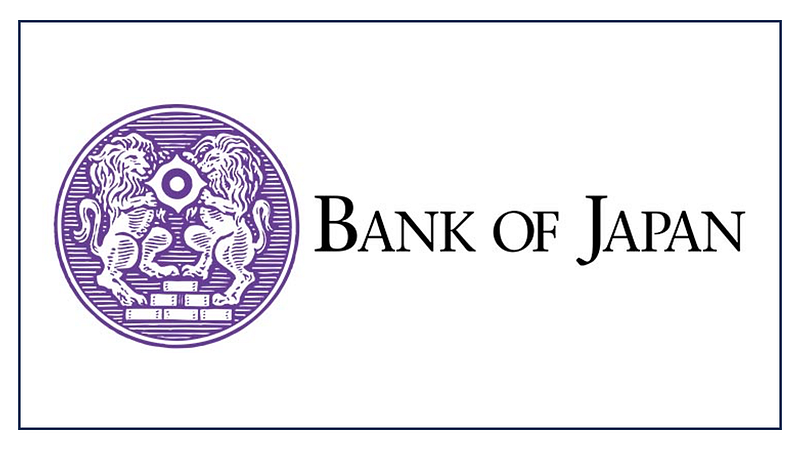Bank of Japan holds policy rate steady
The Bank of Japan maintained its current monetary policy stance, aiming to keep the policy rate around 0.25% and guiding the short-term…

The Bank of Japan maintained its current monetary policy stance, aiming to keep the policy rate around 0.25% and guiding the short-term interest rates. The BOJ recognized that while there are signs of weakness in certain sectors, the Japanese economy is still experiencing a gradual recovery. This optimism is fueled by the expectation that global economic growth will continue at a moderate pace, and the favorable financial environment will eventually lead to a stronger income-to-expenditure cycle, exceeding the country’s potential growth rate.
Governor Ueda’s press conference on September 20, 2024, provided valuable insights into the BOJ’s current thinking on the Japanese economy, monetary policy, and the global economic landscape. He emphasized the BOJ’s commitment to achieving its 2% inflation target, highlighted the importance of continued wage growth and tight labor markets, and acknowledged the need for careful consideration of the potential impacts of global economic developments. The BOJ remains vigilant in monitoring data and market movements, demonstrating a flexible and data-driven approach to policy decisions. While acknowledging the challenges posed by global economic uncertainty, Governor Ueda expressed confidence in the BOJ’s ability to navigate these complexities and maintain a stable and healthy economic environment for Japan.
Inflation Analysis
Governor Ueda acknowledged that the year-on-year growth of Japan’s Consumer Price Index (CPI), excluding fresh food, is slowing down as the initial price pass-through effect of imported price increases wanes. However, service prices are steadily rising, driven by factors like wage growth, leading to a recent CPI reading in the 2% range. The BOJ anticipates that the pass-through effect will further diminish in the future, but government policies and other factors will push year-on-year growth higher.
Long-Term Inflation Expectations and Wage Growth
The BOJ projects that inflation will gradually rise in the future, supported by the narrowing of the macroeconomic output gap, strong wage-price spirals, and rising long-term inflation expectations. The BOJ considers these developments crucial for achieving its long-term goal of sustainably stabilizing inflation at 2%. Notably, Governor Ueda highlighted the importance of continued wage increases in driving this upward trend, emphasizing the positive recent developments in nominal wages, including strong growth in regular pay and bonuses driven by robust corporate performance.
The Role of Labor Market Dynamics
The Governor emphasized the tight labor market situation in Japan, driven by demographic factors and a limited capacity for additional labor supply. He expressed confidence that this robust labor market, combined with strong corporate earnings, will encourage continued wage growth during the next round of wage negotiations. However, the BOJ remains vigilant in monitoring potential impacts of global economic developments on corporate earnings and behavior.
Addressing Concerns about Wage Growth Among Small Businesses
While acknowledging the positive trend in wage growth, Governor Ueda recognized that some small businesses are facing challenges and expressing concerns about their ability to implement significant wage increases. The BOJ will closely monitor these developments, ensuring that sustainable wage growth occurs across all sectors of the Japanese economy.
Communication and Policy Transparency
Governor Ueda acknowledged market criticisms surrounding the BOJ’s communication strategy, particularly concerning the July 2024 policy change that was perceived as a surprise by some market participants. The Governor emphasized the BOJ’s commitment to providing transparent and clear explanations of its policy decisions, acknowledging that these communication efforts could be further enhanced. He reiterated the BOJ’s long-standing commitment to adjusting monetary policy to account for inflationary pressures, with the July 2024 policy change aligning with that principle.
Addressing Market Volatility and Global Economic Uncertainty
The BOJ remains deeply concerned about global economic uncertainty, particularly regarding the trajectory of the US economy. The Governor emphasized that the BOJ is closely monitoring market movements and will closely assess the impact of these developments on the Japanese economy, particularly regarding inflation.
Central Bank Communication and Market Expectations
Governor Ueda acknowledged the significant gap between the BOJ’s outlook and market expectations regarding the future policy path and interest rate trajectory, highlighting the need for continued efforts to bridge this divide. He emphasized that while there is no predetermined timeline for future rate adjustments, the BOJ will carefully evaluate new information and make necessary adjustments to its policies accordingly.
The Impact of the Yen’s Appreciation
The BOJ acknowledges that the recent appreciation of the Japanese Yen has reduced inflationary risks associated with imported price increases. However, the Governor emphasized that the future path of the Yen is intricately linked to global economic trends, particularly the trajectory of the US economy, which poses uncertainty about the overall impact on the Japanese economy.
Impact of the US Interest Rate Cuts
Governor Ueda confirmed that the recent US Federal Reserve rate cuts, aimed at mitigating potential economic hardship, are being closely monitored by the BOJ. While the BOJ recognizes that these cuts could potentially put pressure on the Yen to appreciate further, it believes that the long-term implications for the BOJ’s policy trajectory will depend on the overall success of the US Fed’s efforts to engineer a soft landing for the US economy.
The BOJ’s Response to Global Monetary Policy Shifts
The BOJ acknowledges that the divergence in monetary policy paths between Japan and other major economies, particularly the US, poses challenges. However, the BOJ maintains that the US Fed’s actions are primarily driven by the need to stabilize the US economy, while the BOJ is focused on achieving its own inflation targets. This implies that the divergence in monetary policy paths is unlikely to significantly alter the BOJ’s overall approach to managing the Japanese economy.
The BOJ’s Commitment to Achieving Its 2% Inflation Target
The BOJ continues to prioritize achieving its 2% inflation target, emphasizing that it is focused on ensuring the target’s sustained and stable realization. While recognizing that there are some concerns about the effectiveness of the current framework in achieving this goal, the BOJ remains committed to maintaining a cautious and data-driven approach to its monetary policy decisions.
Addressing Concerns About the Yen’s Impact on Japanese Corporations
Governor Ueda acknowledged concerns about the impact of Yen appreciation on corporate earnings, especially for companies relying on exports and experiencing a potential erosion of profits. He emphasized that the BOJ’s monetary policy decisions will be carefully weighed against these potential impacts, acknowledging that a strong Yen could also have positive effects on domestic inflation, contributing to a more balanced economic outlook.
Addressing the Impact of the Yen on Small Businesses
Governor Ueda recognized the potential challenges faced by small businesses as a result of Yen appreciation, particularly those struggling to maintain competitiveness and implement price adjustments. The BOJ recognizes the importance of addressing the concerns of these businesses, ensuring that its policies are supportive of inclusive economic growth and stability.
The BOJ’s Commitment to Data-Driven Decision-Making
Governor Ueda reiterated the BOJ’s commitment to data-driven decision-making, highlighting the importance of closely evaluating the economic landscape and its impact on policy decisions. He emphasized the BOJ’s willingness to adjust its policy stance as new information emerges, reflecting a flexible and adaptive approach to managing the Japanese economy.
The Importance of Global Economic Coordination
While recognizing the challenges posed by global economic uncertainty and diverse monetary policy approaches, Governor Ueda expressed the importance of international coordination in managing these challenges. He emphasized that a collaborative effort among major economies is essential for fostering a stable and sustainable global economic landscape.
The BOJ’s Role in Shaping the Japanese Economic Landscape
Governor Ueda emphasized the BOJ’s continued commitment to maintaining a stable and healthy economic environment for Japan, focusing on achieving its inflation targets and supporting sustainable economic growth. He acknowledged the challenges ahead but expressed confidence in the BOJ’s ability to navigate these complexities through careful monitoring, informed policy adjustments, and effective communication with market participants.
Please follow us to read more about Finance & FinTech in Japan, like hundreds of readers do every day. We invite you to also register for our short weekly digest, the “Japan FinTech Observer”, on Medium or on LinkedIn.
We also provide a daily short-form Japan FinTech Observer news podcast, available via its Podcast Page. Our global Finance & FinTech Podcast, “eXponential Finance” is available through its own LinkedIn newsletter, or via its Podcast Page.
Should you live in Tokyo, or just pass through, please also join our meetup. In any case, our YouTube channel and LinkedIn page are there for you as well.




